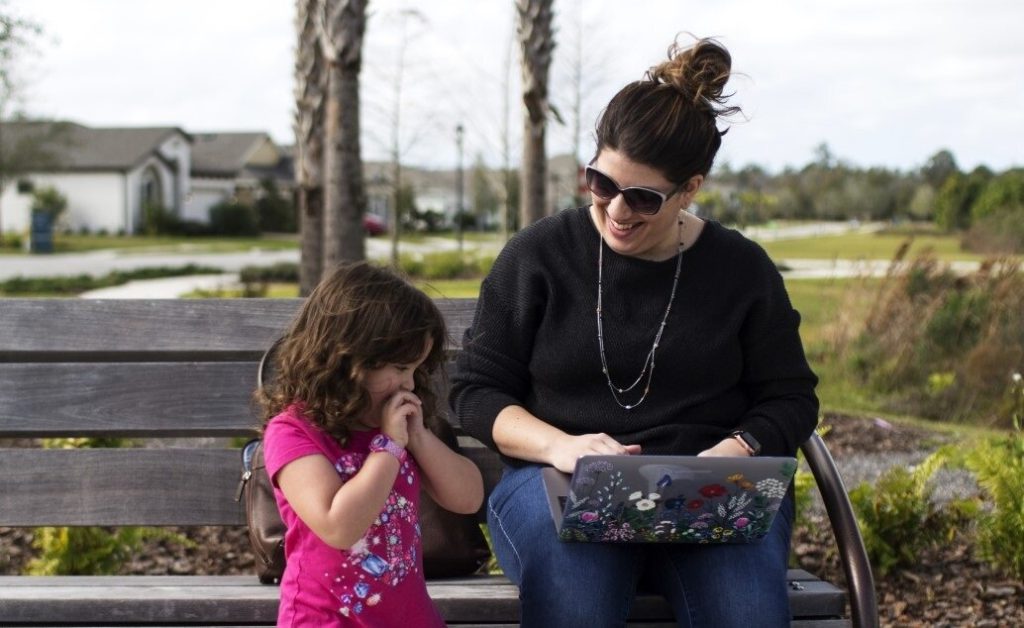
A 2012 study done by University of Utah Professor David Strayer found that 98 percent of people can’t multitask successfully. That’s not exactly encouraging news for online learners, many of whom complete their degree or certificate programs while working a full-time job, raising children, you fill in the blank.
But that was me in April 2016, ready to start my Transition to Teaching certificate program while working a full-time job at my local newspaper and serving as an assistant tennis coach for a local high school.
Later that summer, I checked local teaching job openings out of curiosity. My plan from the start was to teach high school English and journalism, advise the student publications and coach high school tennis. Around Memorial Day, an English and journalism teaching job went up so I applied, figuring it wouldn’t hurt to see if they’d hire me even though I was just three months into my program at ACE. I got the job and started that fall. What seemed to me like a busy life before was nothing compared to what was about to be on my plate.
In my first year of teaching, I oversaw the yearbook and the student newspaper, served as head boys’ and girls’ tennis coach, got engaged to a girl I was in a long-distance relationship with, began planning a wedding and still had several classes left to take to finish my ACE program. That meant I’d wake up at 6 am, begin the school day at 7:30 am, coach tennis from 3:30-5:30 pm and then try to find a couple of hours to knock out schoolwork for ACE. My weekends were spent grading papers, traveling to tennis matches or working on yearbook pages.
I’d venture to say I had more on my plate in my first year of teaching than many veteran teachers have. It was what I wanted, but I was still struggling to figure out how to manage all of this new responsibility.
Here’s what I learned.
Deleting all social media, at least while trying to finish big tasks, can be a lifesaver.
This was one of the hardest things for me to do, but it was also the most necessary. I’d often leave my phone in a completely different room to avoid distractions.
In journalism, I grew attached to my phone, and I’d find myself scrolling through Twitter or Instagram without even thinking about it. Removing this obstacle, even if just for a couple of hours a day, was crucial to staying on task and on schedule.
Setting internal deadlines and following concrete deadlines is also key.
ACE’s program was attractive to me because I was able to limit myself to one five-week class at a time, and each assignment had a specific due date.
This allowed me to create a schedule where discussion boards were done one night, tests were taken on another night and more intensive papers were usually completed toward the end of the week.
Creating a planner and color-coding specific assignments can help.
Develop a system where certain colors or bold fonts correspond with certain assignments. This can help train your brain to associate assignments with their due dates.
Remember to give your brain some down time.
It’s important throughout all of this to allow yourself to relax and have fun. There were weekends when I’d drive two hours away to visit my my then fiancée, and we’d spend our Saturdays in a coffee shop doing our grad school work. Sometimes you have to get creative and mix your social life with your academic life.
It’s all about developing a routine that works for you and sticking to it. There will be weeks where your routine needs to be altered, but once you’ve developed the habit of planning properly, those weeks don’t feel so daunting. The numbers might suggest that earning an online degree while balancing other aspects of life is difficult, but hopefully administering some of these tips will help you be part of changing that statistic.
American College of Education’s fully online programs are designed to fit your busy life. Explore all our graduate-level programs to find the one that fits your career goals.

